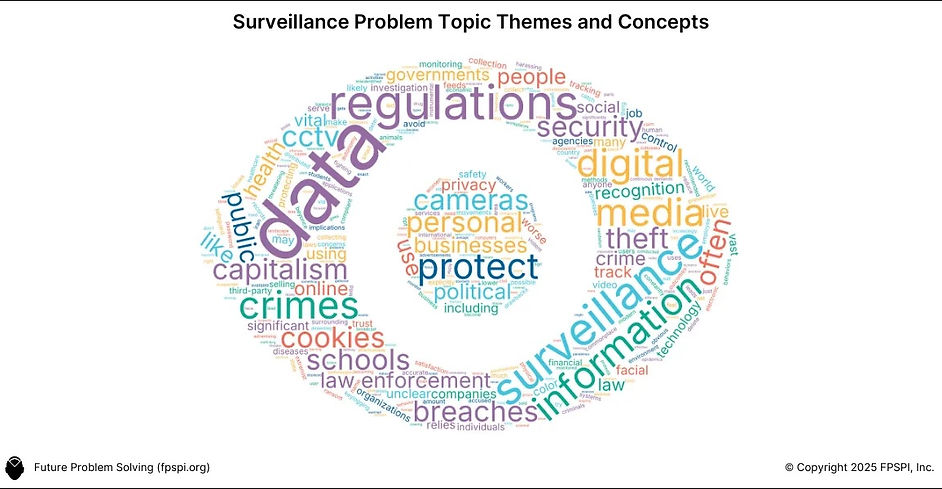Affiliate Finals Problem: Surveillance
Civics & Society
Dates TBA
How might surveillance be used responsibly to balance public safety with privacy and ethical considerations in the future?
Background
Surveillance is the systematic and continuous monitoring, observation, or tracking of individuals, groups, or activities, often conducted by governments, businesses, organizations, or individuals. Surveillance uses various methods, including electronic surveillance, video monitoring, data collection, and even physical surveillance by law enforcement or intelligence agencies.

Context
Surveillance can serve legitimate purposes such as public safety, national security, and crime prevention, but it also raises significant privacy and civil liberty concerns. In the digital age, issues surrounding surveillance have become increasingly complex, as personal data and online behaviors are subject to investigation by both public and private entities. The struggle to balance between security and privacy is an ongoing debate, with discussions focused on defining the limits, legality, and ethical implications of surveillance practices, especially in the context of technology and the digital landscape.
Questions
-
What are the implications of surveillance for individuals and society?
-
After surveillance data is gathered, how should it be stored and distributed?
-
Beyond criminal investigation, what other applications does surveillance have?
-
How does surveillance vary from country to country?
-
How should surveillance be governed at an international level?

Our Future Problem Solving topics represent important challenges from business, civics, society, science, and technology and serve as the thematic basis for given problem solving situations. Each year, students in grades 4-12 get to solve important near-future global issues and progress through local, regional, and international competitions. Through our programs, problem solvers learn how to think, not what to think, and gain skills they need to succeed in work and life. To learn more about Future Problem Solving visit fpspi.org.
Suggested Readings by Theme
Crime and Control
Surveillance Capitalism
When Surveillance Gets it Right
Protecting Data

Our Future Problem Solving topics represent important challenges from business, civics, society, science, and technology and serve as the thematic basis for given problem solving situations. Each year, students in grades 4-12 get to solve important near-future global issues and progress through local, regional, and international competitions. Through our programs, problem solvers learn how to think, not what to think, and gain skills they need to succeed in work and life. To learn more about Future Problem Solving visit fpspi.org.
